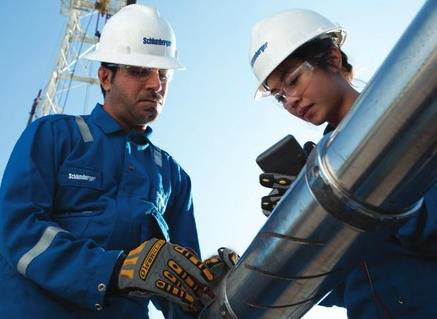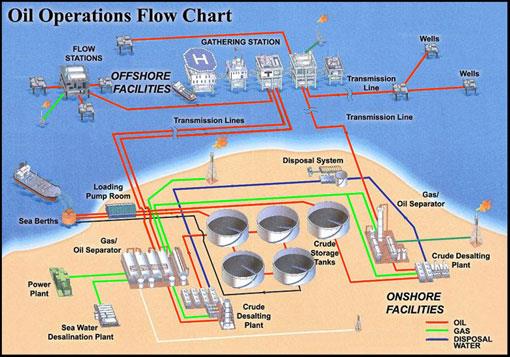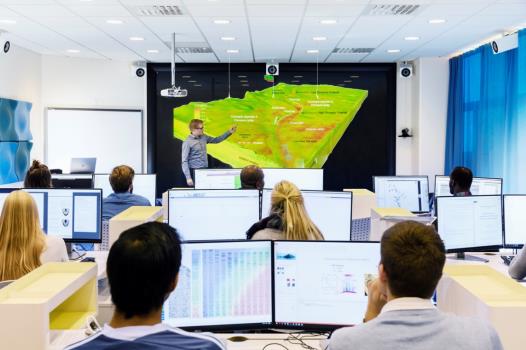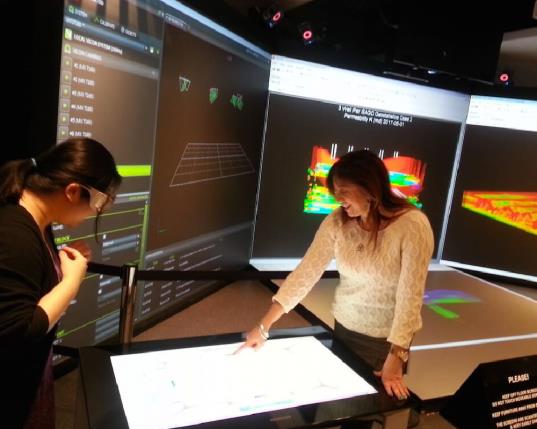COURSE OVERVIEW
DE0210 : Basic Reservoir Engineering for Non-Reservoir Engineer

OVERVIEW
| COURSE TITLE | : | DE0210 : Basic Reservoir Engineering for Non-Reservoir Engineer |
| COURSE DATE | : | Dec 22 - Dec 26 2024 |
| DURATION | : | 5 Days |
| INSTRUCTOR | : | Dr. Saad Aljzwe |
| VENUE | : | Doha, Qatar |
| COURSE FEE | : | $ 8500 |
| Register For Course Outline | ||
OTHER SCHEDULED DATES
| Date | : | Mar 04 - Mar 07 2024 (4 Days) | Location | : | Dubai, UAE | Classroom Fee (US$) | : | $ 6750 | Course Info |
| Date | : | Jun 24 - Jun 27 2024 (4 Days) | Location | : | Abu Dhabi, UAE | Classroom Fee (US$) | : | $ 6750 | Course Info |
| Date | : | Sep 30 - Oct 03 2024 (4 Days) | Location | : | Al Khobar, KSA | Classroom Fee (US$) | : | $ 6750 | Course Info |
Course Description
This practical and highly-interactive course includes real-life case studies and exercises where participants will be engaged in a series of interactive small groups and class workshops. Oil Reservoirs have been created by complex sedimentary and diagenetic processes, and modified by a history of tectonic change. Reservoirs are complex systems on all scales. Decisions such as pumping and injection, new well placement, and drilling in an active oil field, are typical of the complex relationships between reservoir engineering and oil field/reservoir management. Reservoir engineering is the application of scientific principles to solve issues arising during the development and production of oil and gas reservoirs. This course covers the engineering operations involved in analysing the production behaviour of oil and gas wells, including well performance engineering, reservoir aspects of well performance, restricted flow into the wellbore, rate decline analysis, and fundamentals of artificial lift.This course is designed to give participants a detailed overview of the fundamental reservoir engineering to better understand its practices, the required data, its interpretations, the processes and its limitations. Further, the course deals with the basic concepts of fluid flow, leading on with laminar and non-Darcy flow, including multiphase situations, oil and gas reservoirs, from fluid and rock characteristics, production injection analysis, material balance applied to oil reservoirs, immiscible displacement and natural water influx. Case studies will be use throughout the course to demonstrate concepts and real situations.
link to course overview PDFTRAINING METHODOLOGY
This interactive training course includes the following training methodologies:
LecturesWorkshops & Work Presentations
Case Studies & Practical Exercises
Videos, Software & Simulators
In an unlikely event, the course instructor may modify the above training methodology for technical reasons.
VIRTUAL TRAINING (IF APPLICABLE)
If this course is delivered online as a Virtual Training, the following limitations will be applicable:
| Certificates | : | Only soft copy certificates will be issued |
| Training Materials | : | Only soft copy materials will be issued |
| Training Methodology | : | 80% theory, 20% practical |
| Training Program | : | 4 hours per day, from 09:30 to 13:30 |
RELATED COURSES

DE0266 : Applied Field Development Planning
- Date: Dec 22 - Dec 26 / 3 Days
- Location: Doha, Qatar
- Course Details Register

DE0893 : Practical Seismic Interpretation with Petrel
- Date: Dec 22 - Dec 26 / 3 Days
- Location: Doha, Qatar
- Course Details Register

DE0210 : Basic Reservoir Engineering for Non-Reservoir Engineer
- Date: Dec 22 - Dec 26 / 3 Days
- Location: Doha, Qatar
- Course Details Register

DE0303 : Reservoir Characterization
- Date: Dec 22 - Dec 26 / 3 Days
- Location: Doha, Qatar
- Course Details Register
